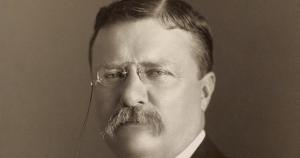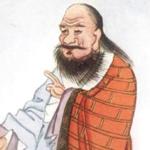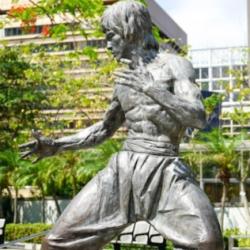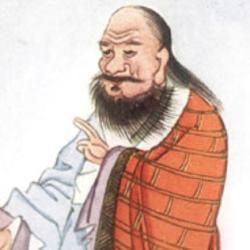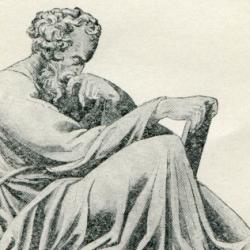Theodore Roosevelt was highly influenced by Stoic philosophy. Difficult people and situations become an opportunity for development and character formation. Conversely, without adversity, we’re without that perspective that may have been on offer.
In Roosevelt’s words:
“Nothing in the world is worth having or worth doing unless it means effort, pain, difficulty… I have never in my life envied a human being who led an easy life. I have envied a great many people who led difficult lives and led them well.”
This touches on some of the key sentiments from my post on Thoreau, Holmes, and Wallace on Truly Living. In Thoreau’s view, “the mass of men lead lives of quiet desperation” and relatedly to Wallace: “everyman dies, not everyman lives.” For Holmes these souls represent a company of “those that never sing” and they “die with all their music in them.”
An easy and comfortable life is indeed a life of quiet desperation, for what is truly exceptional in comfort and ease? The best version of ourselves requires the crucible of adversity for mutation and natural selection. Along these lines, the famous Stoic philosopher Seneca argued the lack of adversity is the ultimate conduit to unhappiness. In his words:
“No man is more unhappy than he who never faces adversity. For he is not permitted to prove himself”
For Aristotle and Stoic philosophers, “happiness” has a much higher bar than an emotion. For Aristotle, the word “eudaimonia” (often translated to happiness) requires the fulfillment of virtuous action, according to one’s nature and potential. This definition of happiness ultimately requires fulfilling one’s potential which cannot happen with adversity and evolution of one’s character.
Another famous Stoic philosopher Epictetus made a Wrestling Analogy For Adversity as Character Formation. In his words:
“The true man is revealed in difficult times. So when trouble comes, think of yourself as a wrestler whom God, like a trainer, has paired with a tough young buck. For what purpose? To turn you into Olympic-class material. But this is going to take some sweat to accomplish. From my perspective, no one’s difficulties ever gave him a better test than yours, if you are prepared to make use of them the way a wrestler makes use of an opponent in peak condition.”
As effort, adversity, and difficulty is essential to becoming our best selves, Roosevelt argues that for someone who’s been spared from and/or runs from adversity – envy should be the last thing on our minds. Pity would be more appropriate as it represents a life unfulfilled.
We often see this played out in someone with a “lack of perspective.” Those that have been through difficult things (and continue to put themselves through difficult things) often bring a sense of perspective, character, and purpose that is uplifting or inspiring – at the very least a poise that is of an entirely different grain of someone chained by the limits of their own comfort and fears.
To Roosevelt, our envy should be of those that have surmounted and seek difficult things. They offer us a poise and perspective that should inspire and challenge us. We may never go through the same situations, but we can critically assess what challenges and adversity we’re actively taking on or avoiding – and remember that our best selves beckon.
A life lived well, says Roosevelt, is one of grinding towards our potential. In that, a difficult life should our envy.
Image credit: Theodore Roosevelt by the Pach Bros @ Wikimedia Commons


